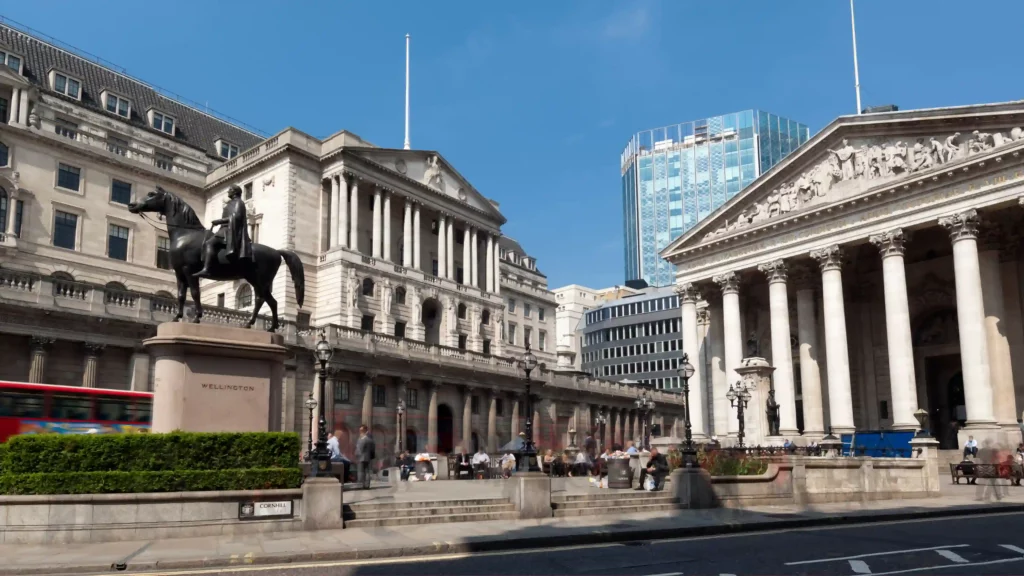The major issue crippling the UK economy is inflation, at a record high of 7.9%
The UK is under hyperinflation, with prices soaring into the atmosphere. A recent figure depicted that inflation has cooled a bit as the rate fell to 7.9% in June; earlier, it was around 8.7% in the previous month.
As per the global scenario, the inflation rate in the UK is higher than its other wealthy counterparts. This signals that the Bank of England might continue with its rate hike. In the last 20 months, the central bank has aggressively increased the rate from 0.5% to 5%. The 15-year high for interest rates was hit just last month with the 13th consecutive hike of 50 basis points.
There are different arenas that decide the trajectory of an economy. Let’s dive into various sectors that are struggling to make economic progress-
Inflation
The major issue crippling the economy is inflation, at a record high of 7.9%. In their neighbourhood, i.e., the European Union, the inflation rate is 5.5%. The Organisation of Economic Cooperation and Development had predicted that the UK would have to deal with a headline annual rate of 6.9%, the highest among all the developed economies.
The United Kingdom had to deal with dual simultaneous shocks. The first one was the supply chain crisis due to the shortage of labourers after the pandemic, and the second was the food and energy price rise due to the conflict between Russia and Ukraine.
Britain purchases a lot of energy, similar to the European Union. The effects of the decrease in wholesale fuel prices are taking longer than normal to cool the inflation figures. Experts suggest that this might be because of the delayed implementation of energy support, which is giving space for price oscillation to reflect in the inflation data and household bills.
The main concern still remains the core inflation that influences energy and food prices. This stands at its three decades high. This represents that the country’s citizens are choosing to spend on non-essential items, and some are utilising their savings built up during the pandemic.
Interests rates
The Bank of England controls this optional money outflow whenever it wishes to raise the cost of borrowing. Britain is in line with several other rich nations, who, in order to slow down their economy, have opted to raise the rates for mortgage deals for the past one and half years.
There are some discrepancies in the after-effects because, in the United States and some of the European nations, fixed-rate mortgage deals are of a significantly longer period; they go up to 30 years. The French government has instead put a ceiling on rates, pausing them at 3.5%.
Still, the Bank of England will go on with its rate hike despite the inflation slowing down slightly. They anticipate that there might be one more rate high in the future and sustain the higher stance for a longer tenure.
Unemployment
The unemployment situation isn’t that bad, as predicted by analysts considering the covid pandemic and decades of high-interest rates. The unemployment rate stands at 4%, slightly above Washington’s 3.6%.
There is another different issue, to be called an unemployed person, one needs to be willing to look for a job; otherwise, they would be counted as inactive. The UK now has significantly more inactive workers than before the pandemic. The OECD has ranked the UK in the last position amongst the G7 in terms of workforce participation rates.
Tax
Inflation and rates are followed by the tax system. Business corporations to salaried people, both forums are under the clutches of an inflated tax bill.
The proportion of the gross domestic product (GDP) paid back to the tax-paying citizen is nearing its post-war record high of 37.7% by 2028. A French tax-paying citizen receives 45 cents of every Euro the nation produces.
Growth
As per the quarterly reports published by the government, the United Kingdom and Germany are the only two nations from the G7 that are still running a smaller economy compared to the size back at the end of 2019. Chancellor Jeremy Hunt argues that the Uk economy has expanded at a faster rate than Italy, France, and Japan since 2010.
Some analysts say that a factor behind this might be the reluctant nature of British consumers, who are not speeding up their consumption. International trade has also slowed down owing to the reduced internal economic activity. Experts say that these might be the result of trading arrangements during Brexit.
